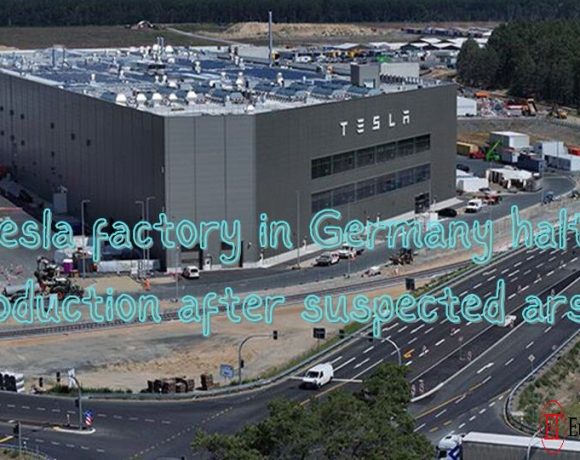
Tesla’s car factory in Berlin came to a standstill on Tuesday following a suspected arson attack in the vicinity. The incident occurred when an electricity pylon near the plant caught fire, resulting in power disruptions within the factory premises and neighboring towns. Despite ongoing protests by environmental activists against the factory’s expansion, they denied any involvement in the fire incident.
Although the fire did not reach Tesla’s factory itself, it caused damage to the electricity pylon and high-voltage wires nearby. The company took precautions by sending its workers home, ensuring the safety of its building. Authorities, including Brandenburg’s Interior Minister, emphasized the seriousness of the act of sabotage but urged against premature speculation regarding the perpetrators.
The situation has escalated against the backdrop of environmental concerns, with around 100 activists camping in the adjacent forest to protest against the factory’s expansion plans. Their primary objection revolves around the potential deforestation required for the expansion project. Despite assertions from environmental groups like Robin Wood denying any involvement in the fire, tensions remain high.
Tesla’s ambition to double the size of its only European plant is met with resistance from environmental activists. Currently, the factory produces approximately 500,000 cars annually, with plans for expansion aimed at doubling this output. However, the disruption caused by the recent incident has left production in limbo, with uncertainty surrounding when operations will resume.
Picture Courtesy: Google/images are subject to copyright

